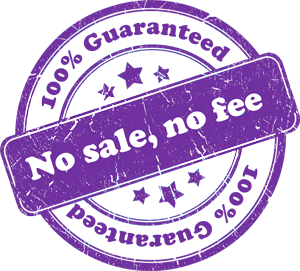When Do You Pay the Deposit on a House?
- Your main house deposit is typically paid the day before or on the day of exchange of contracts, usually 10% of the purchase price (negotiable).
- For new builds, an initial reservation deposit (often £250 - £2,000) is paid and later deducted from your main deposit.
- You always pay your house deposit to your solicitor, who requires verification of bank details and then transfers it to the seller's solicitor upon exchange.
- The deposit is held by the seller's solicitor until completion, protecting both parties. They are not allowed to send the deposit until after completion.
You don't pay the money directly to the seller or their solicitor. Your (the buyer's) solicitor handles all fund transfers, typically via secure bank transfer (cheques are now very rare).
It is rare for the main deposit to be sent before exchange of contracts, unless you are buying a new build from a developer, where a reservation deposit might apply.
How much deposit do I need for a house?
The absolute minimum can be as low as 5% of the property's purchase price, but the average deposit on a house in the UK, particularly for first-time buyers, is often higher (typically 10%). To calculate the amount of deposit you'd need to pay, simply divide the overall property price by 10.
A larger deposit can improve your mortgage options and will reduce your monthly mortgage repayments. However, there are schemes where you can buy with zero deposit.
Standard deposit on exchange
Legally, the contract between you and the seller states that you are liable to pay a 10% deposit on exchange of contracts. This is the standard practice in England & Wales conveyancing. For example, a common clause in the contract might read:
- 2.2 Deposit
- 2.2.1 The buyer is to pay or send a deposit of 10 per cent of the purchase price no later than the date of the contract"
However, it is often possible to negotiate to pay a lower deposit, commonly between 5% and 10%. Our detailed guide on buying with a 5% deposit provides more information on this.
Even if you have a larger overall deposit saved (e.g., 25% of the property value), you generally only need to transfer the agreed 5% or 10% at the point of exchange of contracts.
The remaining balance of your funds (including any further deposit amount and your mortgage funds) is then transferred on completion day.
Average house deposit in 2025
- For first-time buyers, the average deposit is approximately £75,000 (Source: MoneySuperMarket), with a median closer to £48,000 (Source: Better.co.uk). This represents around 15-20% of the average first-time buyer property value.
- Deposits for home movers tend to be higher, often utilising equity from a previous property sale.
- For an average house price of around £292,000, a 10% deposit would be approximately £29,200.
- Fixed, competitive legal fees with no hidden costs.
- Expert conveyancing solicitors with proven local knowledge.
- No Sale, No Fee protection for your transaction. Terms apply.
- On 99% of mortgage lender panels.
- Fast completions.
- We can solve any property challenge.
Safely transferring the house deposit and funds to your solicitor
When you transfer a deposit to a solicitor, especially large sums like your exchange deposit, it's vital to do so securely. While the Fast Payment system allows transfers up to £10,000 per day (check with your bank for current limits), you may need to make multiple transfers over several days for larger amounts (e.g., if you need to pay £25,000, you might send £10,000 on day one, £10,000 on day two, and the balance on day three to avoid bank transfer fees). Always confirm your bank's daily limits and transfer procedures.
Check your solicitor's bank details by phone
It is essential that when you transfer any deposit or funds to your solicitor, you verbally check the bank details with another person within the solicitor's practice.
When do you pay your house deposit?
Initial Payments - Your Solicitor
One of the very first payments you'll make in your home buying journey is an initial deposit to your Conveyancing Solicitor. This happens very early on, often on "Day 1" of instructing them, and is an upfront payment towards their legal fees and disbursements.
Solicitors' fees for the entire conveyancing process can range from £500 to £2,000, depending on the property's value and tenure (Freehold vs Leasehold). Most solicitors will require a deposit to be made on account, ranging from £190 to £300.
At SAM Conveyancing, our solicitors take an initial deposit of £160, which is covered under our No Sale No Fee Policy. This means that if your property purchase falls through, you won't be charged for the legal work completed up to that point.
Reservation Deposit (New Builds)
If you're buying a new build house or flat, you'll likely encounter a reservation deposit very early in the process, often on "Day 1" when you agree to purchase the property. This deposit is paid to the developer or their estate agent to formally take the property off the market and reserve it for a set period.
The amount of a new build reservation deposit can range from £250 to £2,000. You should always ensure that the reservation deposit is part of the purchase price and, ideally, refundable if your purchase falls through due to unforeseen circumstances (e.g., mortgage issues or survey findings).
Some estate agents or developers may charge a non-refundable fee simply to accept an offer, which is different from a true reservation deposit that contributes to your overall funds.
Exchange Deposit - 10% Payment
The exchange deposit is arguably the most important payment you'll make before completion, commonly amounting to 10% of the property's purchase price.
This payment is made to your solicitor, who then holds it in their client account, ready to transfer to the seller's solicitor upon the formal exchange of contracts.
This is the moment when you pay the deposit on a house that legally binds you to the purchase. Once contracts are exchanged, you are contractually bound to buy the property, and the seller is bound to sell it to you.
The deposit must be cleared (available) in your solicitor's client account before they can proceed with the exchange.
When does the exchange of contracts happen?
Several factors can influence the timeline:
- The length of the property chain.
- Whether you are getting a mortgage, and the lender's processing times.
- If the property is leasehold, which often involves additional work and third parties.
- The responsiveness of the seller and their legal team.
- Involvement of a management company or freeholder (for leasehold properties).
- If you are buying using a gifted deposit, which may require additional paperwork.
Solicitors estimate an average timeframe of 8-10 weeks for a freehold purchase and 12-14 weeks for a leasehold or share of freehold property. The more complex the conveyancing process and the more parties involved, the longer it will generally take to reach the exchange of contracts.
Balance of Completion Monies
The balance of completion monies represents the final sum of money you'll need to transfer to your solicitor and finalise the purchase. This payment is made the day before your agreed completion date.
Your solicitor will provide you with a detailed breakdown of these funds in a completion statement. This statement will include:
- Balance of the purchase price: This is the agreed property price, minus any exchange deposit and, if applicable, any reservation deposit you've already paid.
- Stamp Duty Land Tax (SDLT): This tax is payable to HMRC. While your solicitor must receive the correct amount to complete, they will pay it on your behalf within 14 days after completion. You can use our online Stamp Duty Calculator to estimate this cost.
- Land Registry Fee: This is the fee paid to HM Land Registry to register you as the new legal owner of the property.
- (If Leasehold) Apportionments and Landlord Notice Fees: For leasehold properties, this includes ground rent, service charges, and fees for notifying the landlord/management company of the change of ownership.
There may be some other minor costs that you need to pay when buying a property, so always ensure you review your completion statement sent to you by your solicitor carefully.

Fixed quote for our legal costs plus a budget-friendly breakdown of third-party disbursements.

Your sale or purchase is protected by our no sale, no fee guarantee.

Our panel solicitors are pre-approved to work with 99% of mortgage lenders in England & Wales.

Panel solicitors accredited by the Conveyancing Quality Scheme; regulated by the SRA.
Andrew started his career in 2000 working within conveyancing solicitor firms and grew hands-on knowledge of a wide variety of conveyancing challenges and solutions. After helping in excess of 50,000 clients in his career, he uses all this experience within his article writing for SAM, mainstream media and his self published book How to Buy a House Without Killing Anyone.
Caragh is an excellent writer and copy editor of books, news articles and editorials. She has written extensively for SAM for a variety of conveyancing, survey, property law and mortgage-related articles.










